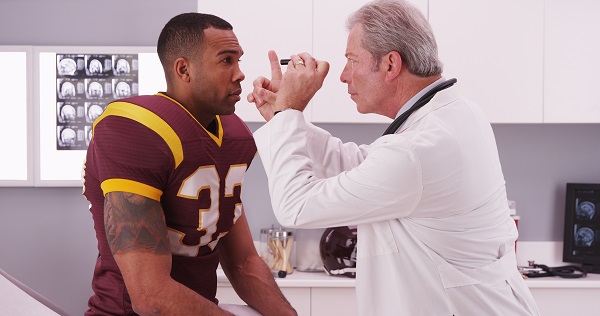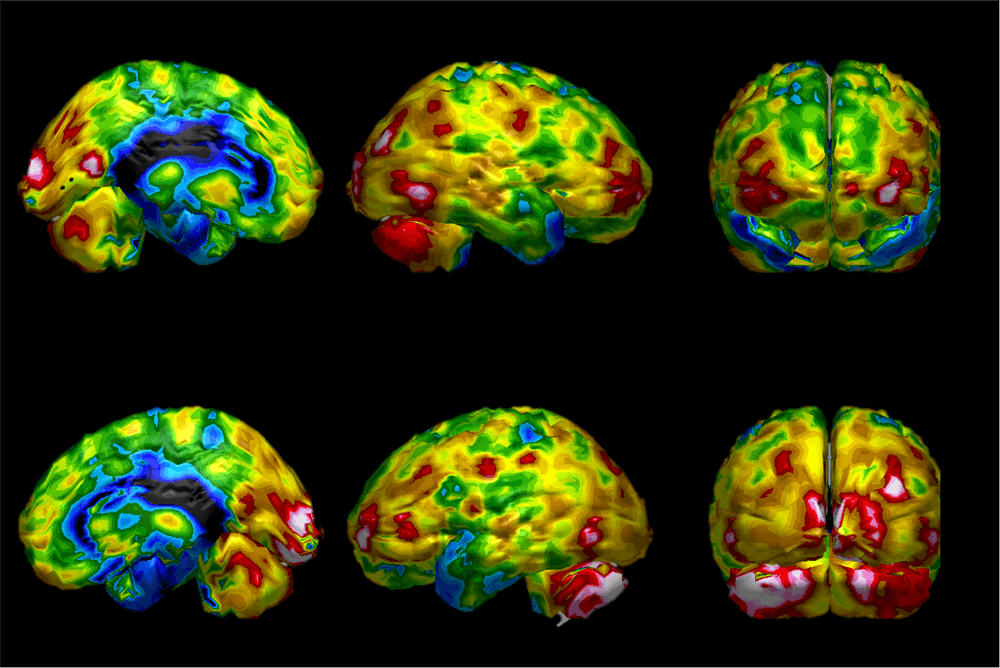
A Post-Concussion Syndrome Test: Does One Exist and How is PCS Diagnosed?


If you have been relentlessly searching online for a post-concussion syndrome test or answers about possible PCS symptoms, you are not alone. It can be incredibly challenging when you don’t understand exactly what is going on in your brain and body. Even completing daily activities with post-concussion syndrome (PCS) symptoms can be especially taxing. Work, school, and relationships can all suffer when PCS is left untreated.
Does a post-concussion syndrome test exist? No, there is no single, definitive post-concussion syndrome that can diagnose PCS, a medical professional can still confirm the condition. Diagnosis is based on a history of head injuries and reported symptoms, as well as a thorough assessment of brain health and function.
Even without a simple PCS test, the Aviv Clinics medical team may be able to provide the clarity you’re seeking. In this article, we’ll explain the common signs of PCS, your treatment options, the type of care you should receive, and how the Aviv Medical Program can help you recover.
Post-Concussion Syndrome: A Condition That Requires a Diagnosis
Post-concussion syndrome is a condition where concussion symptoms continue beyond the normal recovery period.
Most people recover from a mild traumatic brain injury or concussion in a few weeks, with concussion symptoms easing gradually over a period of a few weeks. According to Aviv Clinics physician Dr. Mohammed Elamir, the more chronic symptoms of PCS entail “changes in cognition, whether physical and/or emotional, or sleep as a result of a concussion lasting more than three months.”
PCS occurs after you’ve endured a traumatic brain injury (TBI), even a very mild TBI, also known as a concussion. TBIs can be caused by accidents such as falls, vehicle crashes, and sporting injuries.
It is possible to have a traumatic brain injury and not know it. There are over 2.8 million people who sustain a TBI each year in the United States. When a TBI isn’t treated properly or the recovery isn’t complete, post-concussion syndrome can manifest.
Although there isn’t a quick test for PCS, there is ample research and understanding of this condition that can help explain its signs and symptoms. A clinical evaluation is warranted for symptoms that linger past the typical timeframe for recovery.
Common Signs of PCS That Lead to a Diagnosis
Luckily, there are specific signs to look out for to help you safeguard your health. PCS symptoms encompass four key areas:
- Physical
- Cognitive
- Psychological and emotional
- Sleep
No one enjoys life when dealing with dizziness, balance and vision issues, or challenges with memory or thinking. It’s frustrating to be more irritable than usual, or feel depressed or anxious after a concussion. An injury to your brain can easily impact your sleep, which prevents your brain from getting the rest it needs to reset at night.
How is Post-Concussion Syndrome Diagnosed When No Single Test Exists?
While there isn’t one specific test you can take for a PCS diagnosis, and you certainly can’t get a conclusive diagnosis from online information, there are a variety of assessments that physicians can use to determine if you’re dealing with chronic post-concussion symptoms.
Why use a variety of evaluations? By looking at different assessments, you can rule out any other cause for your troubling symptoms. In addition to reviewing your injury history and monitoring your symptoms, your doctor may perform a combination of any of the following exams to determine if you have PCS:
- Advanced neurological medical exam: This neurological exam entails evaluations of your nervous system. Physicians may use tools such as lights and reflex hammers.
- Neurocognitive testing: Neurocognitive testing examines brain function using memory, verbal communication, and motor tests.
- Advanced MRI with DTI sequence: This advanced version of an MRI maps out specific parts of the brain.
- SPECT scan: A SPECT (Single Photon Emission Computed Tomography) scan identifies parts of the brain that have been negatively affected.

What Happens After Post-Concussion Syndrome Testing?
Once you’ve been thoroughly evaluated, your physician will likely present a variety of treatment options for your post-concussion symptoms. Some facilities depend primarily on cognitive behavioral therapies, which have shown strong results for improving sleep for those suffering from PCS. Others may focus on vestibular therapies for improved balance, psychological interventions for symptoms like depression or anxiety, or neuro-optical therapy for blurred or double vision.
However, in most cases, these treatments only address the symptoms of post-concussion syndrome, and not the underlying cause: damage to delicate brain tissue.
Take time to learn more about your treatment options for post-concussion syndrome. This article walks through more research and treatment protocols you should learn about if you’ve experienced any type of brain trauma.
The Aviv Medical Program: A Treatment Option for Diagnosed PCS
If you’re looking for PCS relief, the Aviv Medical Program can be your answer. Our customized, multidisciplinary program is designed to address both the symptoms and the cause of your PCS by treating your damaged brain tissue. Our program is unique because it is managed by a diverse team of clinical experts, all under one roof, to provide the personalized care and attention you deserve:
- The Aviv Medical Program can include a combination of hyperbaric oxygen therapy (HBOT), cognitive exercises, physical training, and dietary coaching. In numerous clinical trials, a specific protocol of HBOT has been shown to improve the flow of both blood and oxygen to damaged brain tissue, encouraging recovery.
- Our patients have reported improved cognition (attention, memory, focus, balance, etc.) upon participating in our program. In fact, 96% of Aviv’s clients have experienced clinically verifiable improvements in cognitive function after completing the program.
- Our customized program is backed by over a decade of research in both adults and children. Explore more data from The Sagol Center for Hyperbaric Medicine and Research, one of the world’s largest and most advanced facilities of its kind.
Here’s What to Expect from the Aviv Medical Program for Post-Concussion Syndrome:
- Medical analysis: A thorough assessment conducted by Aviv’s clinical staff (physicians, neuropsychologists, physiotherapists, physiologists, and nurses). Depending on your symptoms and concerns, your pre-treatment evaluation can include advanced brain imaging, cellular analysis, neurocognitive testing, and more.
- Personalized treatment plan: Based on the results of your assessment, our team develops a treatment plan specifically for you. Your customized Aviv Medical Program may include HBOT, cognitive and physical training, and dietary coaching to build the best possible foundation for recovery.
- Post-treatment assessment: At your request, after completion of the program, we can repeat the initial tests to measure progress and make recommendations for ongoing progress.
Learn More About the Aviv Medical Program for PCS
If you believe you or your loved one has post-concussion syndrome, don’t wait for an easy PCS test. The sooner you begin treatment, the better your potential for lasting improvement.
At Aviv Clinics, our team of certified medical professionals has helped thousands of people regain clarity, energy, and quality of life, even after years of lingering symptoms.
Take the first step towards recovery today by contacting our clinic. Our team of certified medical professionals has helped a variety of individuals with unique health backgrounds get back to optimal health. Schedule a consultation and let’s create a personalized path to help you function at your best again.
Last Update: August 14, 2025
Aviv Medical Program provides you with a unique opportunity to invest in your health while you age


